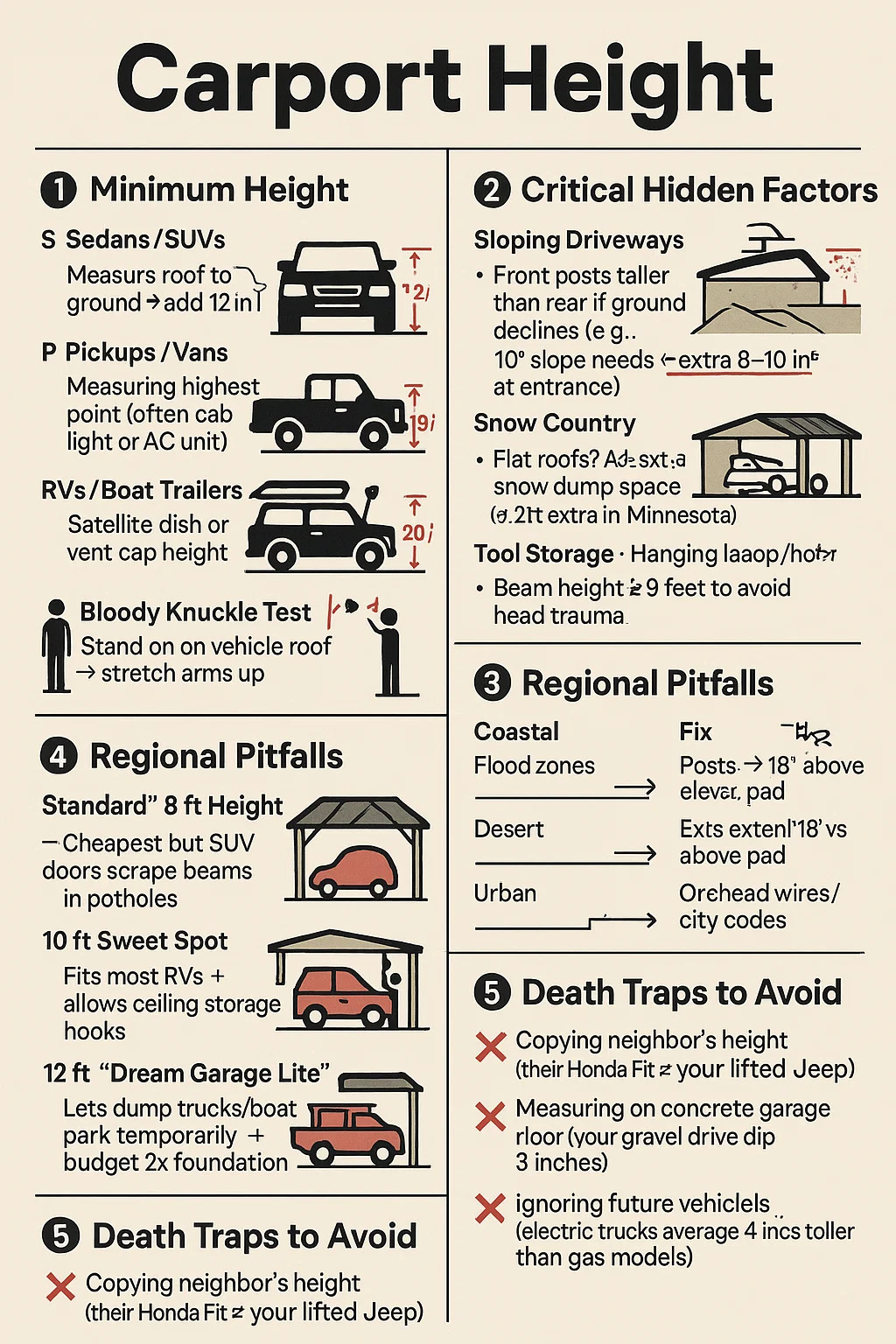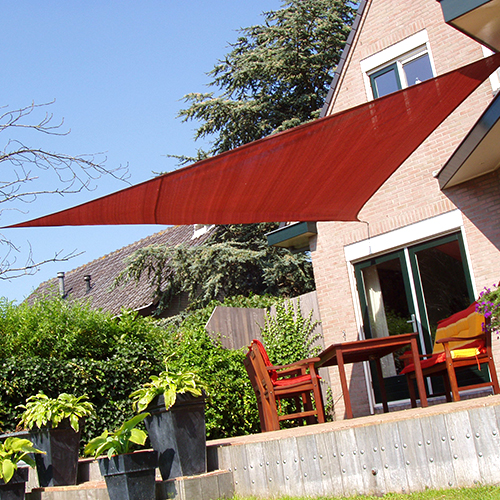Customer expresses intent; Communicate between the two parties; Provide analysis reports to customers; Reach a cooperation intention.
Carport Height:
1. Minimum Height = Vehicle Height + Safety Margin
Sedans/SUVs: Measure roof to ground → add 12 inches (clears roof racks + avoids antenna scrapes).
Pickups/Vans: Highest point (often cab light or AC unit) → add 18 inches (bounces on driveways won’t cause impact).
RVs/Boat Trailers: Satellite dish or vent cap height → add 24 inches (steep entries dip trailers dangerously).
Bloody Knuckle Test: Stand on vehicle roof → stretch arms up. If fingers touch planned beam height If fingers touch planned beam height, add 6 inches.
2. Critical Hidden Factors
Sloping Driveways: → Front posts taller than rear if ground declines (e.g., 10° slope needs **extra 8-10 inches extra 8-10 inches at entrance). → Fail example: Truck bed clears entrance but scrap Truck bed clears entrance but scrapes rear beam when parked.
Snow Country: → Flat roofs? Add snow dump space (e.g., 2ft extra in Minnesota). → Pitched roofs? Height based on lowest edge.
Tool Storage: → Hanging ladders/shovels? Beam height ≥ 9 feet to avoid head trauma.
3. Regional Pitfalls
| Location | Height Trap | Fix |
| Coastal | Flood zones → elevated pads | Posts extend 18" above pad |
| Desert | Dust drifts → blocks exit | Entrance +6" vs interior height |
| Urban | Overhead wires/city codes | Call 811 + check local ordinances |
4. Cost vs. Comfort Trade-Off
"Standard" 8ft Height: → Cheapest but SUV doors scrape beams in potholes.
10ft Sweet Spot: → Fits most RVs + allows ceiling storage hooks (worth the 15% cost bump).
12ft+ "Dream Garage Lite": → Lets dump trucks/boat masts park temporarily → budget 2x foundationbudget 2x foundation costs.
5. Death Traps to Avoid
Copying neighbor’s height (their Honda Fit ≠ your lifted Jeep).
Measuring on concrete garage floor (your gravel drive dips 3 inches).
Ignoring future vehicles (electric trucks average 4 inches taller than gas models).

 English
English 日本語
日本語 русский
русский Español
Español







 浙公网安备 33068302000509号
浙公网安备 33068302000509号